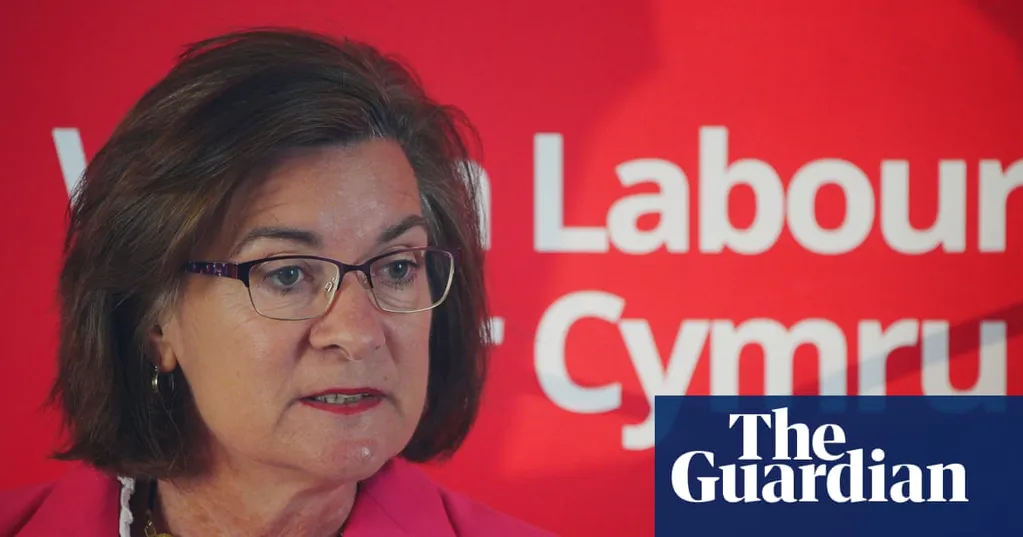For many in Welsh Labour, this summer was the last chance for a rest before the party faces the election battle of its life in next May's Senedd elections. Instead, Labour found itself in mourning for the MS for Caerphilly, Hefin David, who died suddenly last month.
Come October, Welsh Labour will now have to fight a byelection under tragic and untimely circumstances. Plaid Cymru and Reform UK are both well ahead in the polls; losing longtime Labour stronghold Caerphilly would deal another serious blow to morale in an election year.
It would also eliminate Labour's narrow majority in the Senedd - 30 MSs, plus the sole Liberal Democrat - raising questions about Labour's ability to govern and pass this year's budget.
"Hefin's death is very sad and challenging for everyone. Because it happened over the recess, the first time we came together to grieve was at the funeral last week, and it's still sinking in," a senior Labour source said in Cardiff Bay.
David left behind two children and a partner, Vikki Howells, the Labour MS for neighbouring Cynon Valley.
"The final inquest isn't until April. Vikki is going to have to go through all that while campaigning. No one wants a byelection on these terms ... It's going to darken the whole year," the source said.
The Senedd reconvenes on Monday with a packed legislative agenda to rush through before it dissolves in April, including a landmark bill aimed at tackling homelessness. It must also decide how to retool its investigation into the Welsh government's handling of the pandemic after members of the Senedd committee set up to address gaps in the UK inquiry quit in July.
It was never going to be an easy year for Welsh Labour. After leading every Cardiff Bay government since devolution in 1999, polls suggest Labour's base has collapsed and the party will come third next May. Voters' top priority is Wales' struggling public services.
According to OECD metrics, Welsh children's reading, maths and science skills slumped to the lowest ever levels in 2024, and NHS waiting lists are much longer than the rest of the UK - currently about 20% of Welsh patients are waiting more than a year for hospital treatment, compared with about 4% in England.
Wales remains by far the poorest UK nation. Poverty rates have hovered at about one in five people for decades and have intensified over time: the proportion of that group considered to be in very deep poverty has risen from 33% in the 90s to 47% in 2023, according to the Joseph Rowntree Foundation.
"No one underestimates the scale of the fight we have on our hands," said another Welsh Labour source.
Labour's strategy so far has been to attack Plaid Cymru and Reform UK as unknown quantities lacking governing experience. But those parties are buoyant - as are the Greens, who won a seat from Labour in a Cardiff council byelection last month and are hoping to go from zero to as many as four Senedd seats in May on the back of Labour's draining support.
The Caerphilly byelection means the starting gun for the spring elections has gone off early as the first real test of Reform's support in Wales. This term, the party has entered the Senedd for the first time, thanks to the defection of the Conservative MS Laura Anne Jones over the summer, but an elected member would bolster the party's legitimacy and momentum before May.
Nigel Farage himself appeared for the party's candidate announcement at the Caerphilly social club on Friday, telling reporters Reform would "throw everything" at the campaign.
Yet analysis by the Welsh Election Study suggests most former loyal Labour voters were turning to Plaid Cymru rather than Farage's outfit, which is yet to appoint a Welsh leader.
Lindsay Whittle, the Welsh nationalist party's candidate in Caerphilly, kicked off his campaign this week by calling Labour a "spent force in the valleys" and naming Reform as his biggest threat. That was quickly followed by leader of Caerphilly council, Sean Morgan, resigning from Labour, calling the party a "busted flush", and announcing his intention to vote for Plaid Cymru.
A senior Plaid Cymru source said: "Whilst we've never been complacent about the work ahead ... There is profound positivity within the party. Our message is one of change being possible."
The byelection will be the last Senedd contest held under the first past the post voting system. In May, constituencies will be redrawn, the Senedd will grow from 60 to 96 seats, and every race will become newly competitive under proportional representation.
The changes are a particular boon for Reform, which could be the largest party in next year's Senedd. But Labour and Plaid Cymru have vowed not to work with Reform in a coalition, so if the polls are accurate, only the Welsh nationalist party will have a shot at forming a government.
Another unexpected dynamic in next year's election comes in the form of the new leftwing Your Party, put together by Jeremy Corbyn and Zarah Sultana. It has found supporters in Beth Winter, the former Cynon Valley Labour MP, and Mark Serwotka, a former general secretary of the PCS union. The pair are hosting a conference in October to discuss getting candidates on the ballot.
"Your Party fielding candidates could pose more of a threat of splitting Plaid's perceived voter base than ours," said the second Labour source. "There are so many unknowns going into May ... It's going to be a long year but we're up for it."
